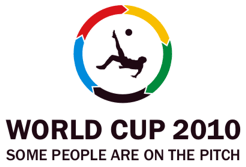Coach Takeshi Okada has recently come to be the living embodiment of an increasingly impatient public. Aside from the fact that he oversaw their 1998 World Cup campaign in which Japan lost all three of its games, Okada was drafted in as an ad hoc replacement for the popular Bosnian Ivica Osim when the latter suffered a stroke in 2007. By comparison, the press have found Okada less likable, the fans have seen his management of the team as being not as successful and the upshot of all this disdain is that Okada has decided to leave his post once the 2010 World Cup is out of the way... unless persuaded to do so beforehand.
The fact that Japan have secured a fourth straight qualification is most admirable, but at no point did they greatly instil a sense of confidence in their supporters. Their campaign to reach South Africa hit turbulence in only their second match when they lost to Bahrain back in 2008, but recovered from that to eventually top their Third Round group. In the next round, they grabbed the second qualifying spot behind Australia but worryingly finished a full five points behind them.
Japan’s main handicap lies in their irregularity in playing the world’s better teams. One of Asia’s footballing superpowers for well over ten years now, they rarely get to play anyone of the standard of Fabio Capello’s men, although in fairness it rarely showed last Sunday. Spectators will have noted that were it not for two own goals in the second half last Sunday, they’d have won the game to little complaint from anyone.
Key amongst their roster of mainly home-based players are Keisuke Honda, very much the Hidetoshi Nakata of his generation and a recent signing for CSKA Moscow, Keiji Tamada, another forward whose strengths lie in his passing and running game, and Yasuhito Endo, the midfielder who was voted Asian Player of the Year in 2009.
Elsewhere in the squad you’ll find the former Celtic dead-ball specialist Shunsuke Nakamura, Wolfsburg’s versatile right-sided midfielder Makoto Hasebe and Shinji Okazaki, a striker who gained some notoriety as the world’s top international goalscorer last year by hitting the net 15 times for his country.
Such players are well drilled in playing Japan’s pacey brand of possession football and on a technical level are a match for anyone on their day. Typically playing in a 4-4-2 formation, they’ll be looking to patiently prize open the defences of Cameroon, the Netherlands and Denmark when the action gets underway in South Africa, but even with the skills and patience they possess, progression to the latter stages looks unlikely on paper. Should they finish as runners-up in Group E (as seems the most optimistic outcome for them), they’ll almost certainly face Italy in the second round.
 All in all, the Japanese find themselves under a cloud of feint despair going into this summer’s competition. With a coach no-one seems to like and a draw that barely encourages optimism, Japan can be excused if they appear to be going through the motions this time around, but each qualification brings with it experience and knowledge. With that in mind, along with a more inspiring coach and a little bit of luck, perhaps 2014 will be their year.
All in all, the Japanese find themselves under a cloud of feint despair going into this summer’s competition. With a coach no-one seems to like and a draw that barely encourages optimism, Japan can be excused if they appear to be going through the motions this time around, but each qualification brings with it experience and knowledge. With that in mind, along with a more inspiring coach and a little bit of luck, perhaps 2014 will be their year.












No comments:
Post a Comment